This post contains both affiliate links and non-affiliate links.
We may receive a small commission if you click on a link and order through it. You may read our disclosure policy here.
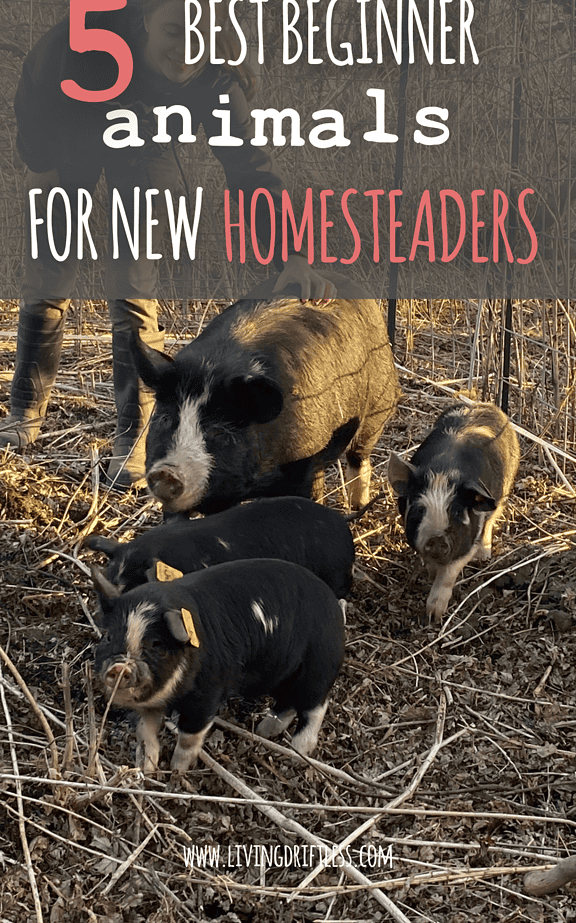
Are you ready to dive into the wonderful world of raising livestock? Starting your homestead can be both thrilling and overwhelming, but fear not! We’re here to guide you in choosing the perfect animals for new homesteaders like you. So, grab your work gloves and a shovel, and let’s get started.
Best Beginner Animals List
Chickens
- Let’s start with the classics – Chickens! Also known as the gateway animal, they are fantastic for beginners because they’re relatively easy to care for and provide a rewarding experience. Chickens offer fresh eggs, pest control, and endless entertainment with their quirky personalities. Our feathered friends can even fit in a Backyard if your town allows it, which makes them perfect for even Micro Homesteaders. Provide chickens with a secure, cozy coop and some outdoor space to scratch around, and they’ll be pretty happy. Try this post on Abundant Permaculture for ideas on starting with Backyard Chickens.
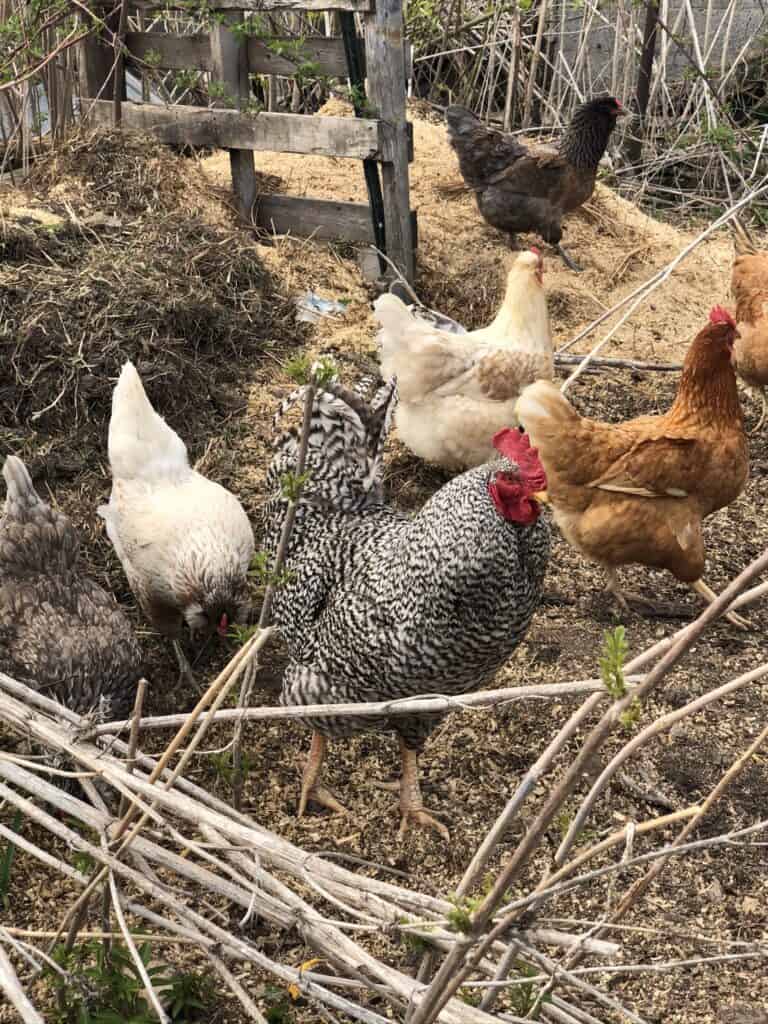
Rabbits
- Aw, sweet Rabbits are another beginner-friendly option. These fluffy creatures are low-maintenance and don’t require much space. They can provide you with a sustainable source of meat and fur. You will need one cage per doe and one for each buck. Set up is relatively inexpensive, and feed is readily supplemented with garden excess. Additionally, they’re great for teaching responsibility to younger homesteaders, and their poop is garden gold! Great little animal for permaculture farms with good management.
Goats
- If you’re up for more adventure, consider getting goats. While they require more attention, they offer many benefits. Goats can provide milk for your family or even for making cheese and soap. They’re also natural weed control experts with an amusing, mischievous side that keeps you entertained. They will escape from just about anything, so good fencing is a must if you want to keep them safe! Try this short guide for a simple beginner guide to keeping goats. We only recently added goats, and so far, we love them!
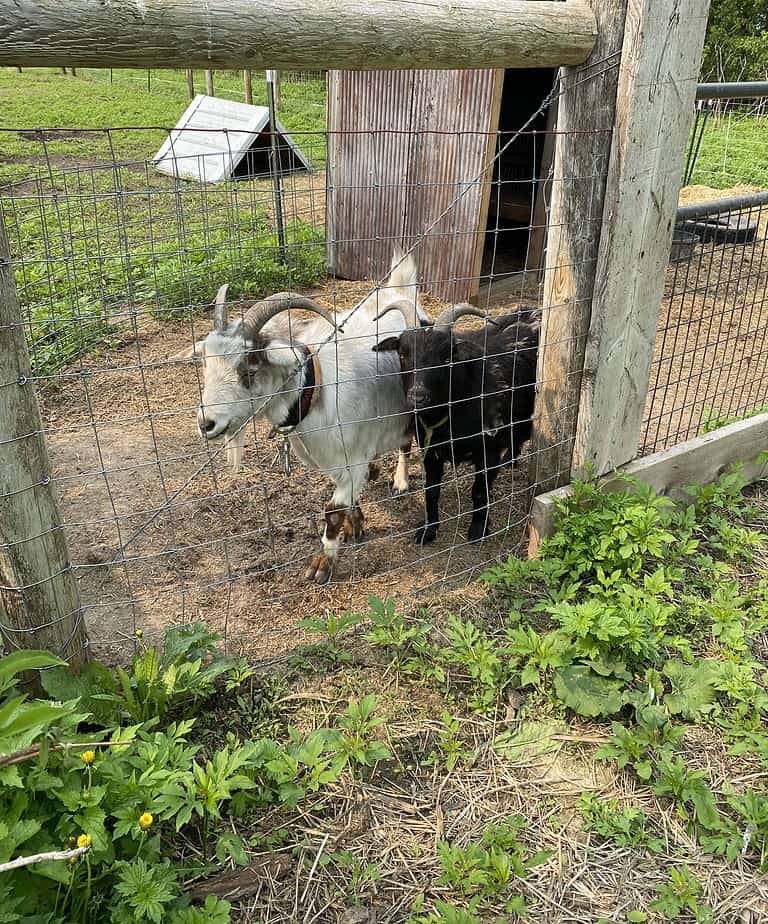
Bees
- Beekeeping may seem intimidating, but it is highly rewarding. Bees are crucial in pollination, supporting your garden’s growth, and ensuring biodiversity. As a bonus, they produce delicious honey and wax for various uses, from candles to balms. Beekeeping does require some knowledge and equipment to set up, so consider looking for a local group to find a mentor and the best place for supplies near you. Try the American Beekeeping Federation for some ideas and info.
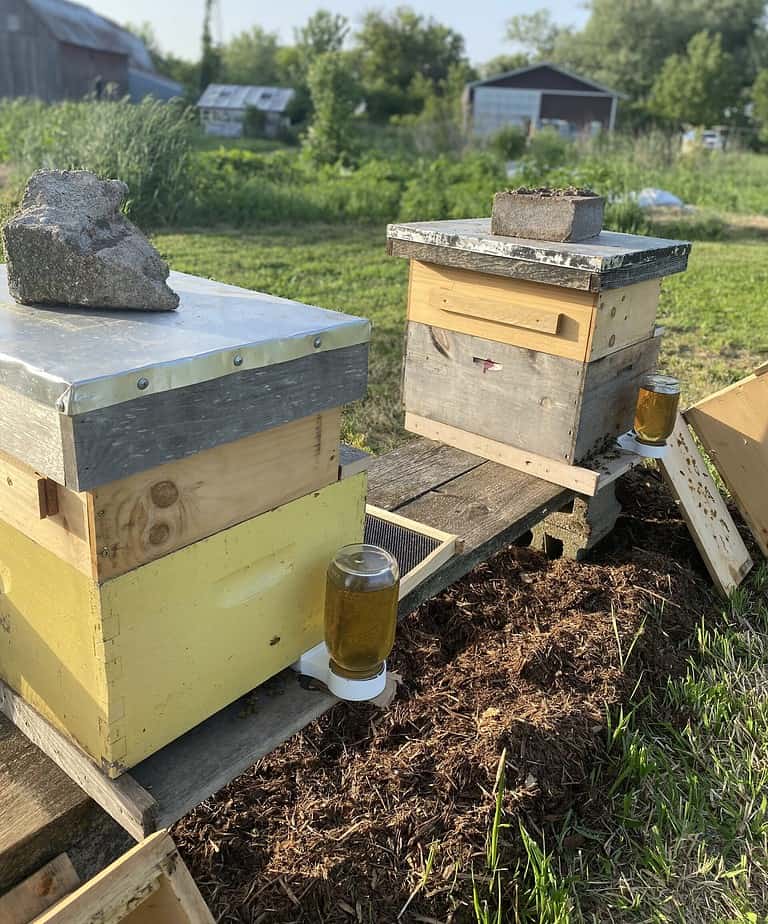
Pigs
- If you have sufficient space and are looking for an additional meat option, pigs can be delightful additions to your homestead. These intelligent and social creatures can be trained and offer companionship. A breeding pair will keep you in meat with extra littles to sell on or raise and sell as a half or whole animal. However, remember they require sturdy enclosures and a proper diet to ensure well-being. For a great Pigs for Beginners post, try one of my favorite fellow Homesteaders and someone whose Farm Tour YouTube videos were a huge inspiration, Justin Rhodes. We love pigs and have enjoyed them on the Homestead for several years. They help us manage our woods and pastures, an excellent added benefit.
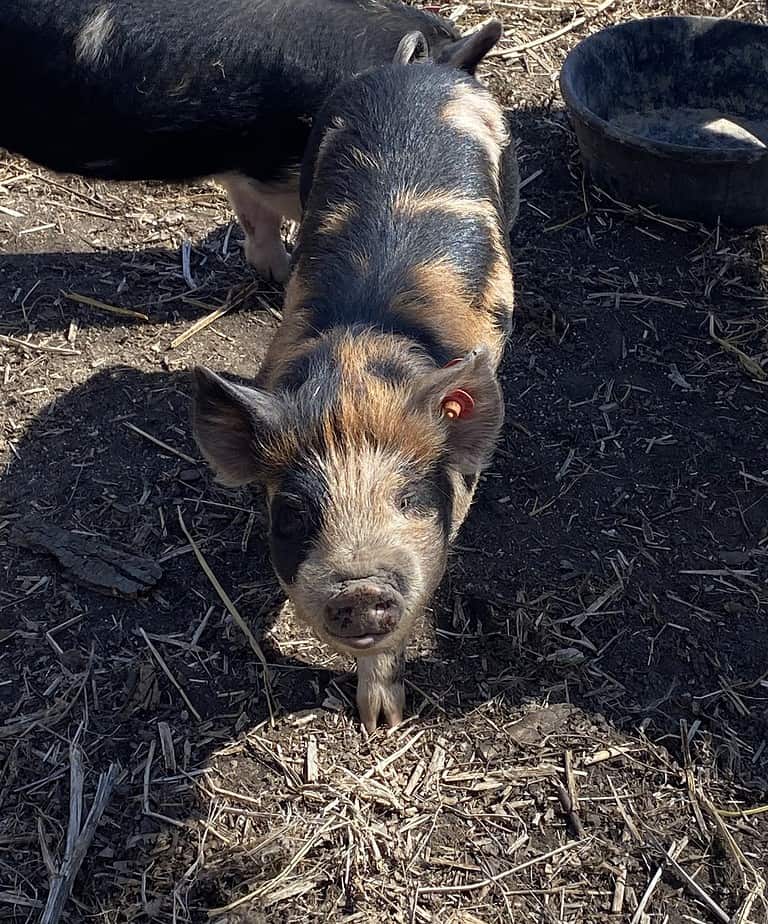
You are embarking on a remarkable journey into the world of livestock. Remember, starting small and gradually expanding your animal family is vital to mastering the art of homesteading. Each animal has its care requirements, so be sure to do thorough research, seek advice from experienced homesteaders, and connect with your local farming community. I have also provided some good reference books below.
Further Reference Materials
This book is one of my favorites for people just starting the Homesteading Journey. You can tell by the book’s condition ours is well-used! It covers poultry like chickens, turkeys, geese and ducks, rabbits, bees, pigs, goats, sheep, and even cows! It provides necessary information on care, feeding, housing and breeding, common problems, equipment, and even good breeds.
Everything is aimed at the Backyard Homesteader, which means breed sizes are appropriate for smaller spaces and cater to those who aren’t raising 200-laying chickens. The small scale is perfect for beginners as it allows you time to get to know the animals and determine what works and doesn’t before scaling up. In addition, we found smaller breeds are generally a bit easier to handle, especially when considering things like pigs. Our chickens’ size is less critical unless we raise them for meat.
Another great source of information for newbies is your local University Extension Office. They have a range of services, including classes, information pamphlets, websites, and resources for all sorts of farming-related issues. Because the Extension Office is local, they often know about common issues in your area and local groups that may be helpful.
To finish up
Whether you choose chickens, rabbits, goats, bees, or even pigs, your homestead will flourish with life, productivity, and joy. Embrace the learning opportunities, enjoy the rewards, and savor the connections you’ll build with your new farm friends.
So, roll up your sleeves, get ready to shovel some manure, and let the adventure begin. Your beginner homestead awaits, filled with furry, feathered, buzzing, and oinking companions who will enrich your life in ways you never imagined. Happy homesteading!
Disclaimer: Always consult with experienced homesteaders or local experts to ensure proper care and safety for the animals on your homestead.
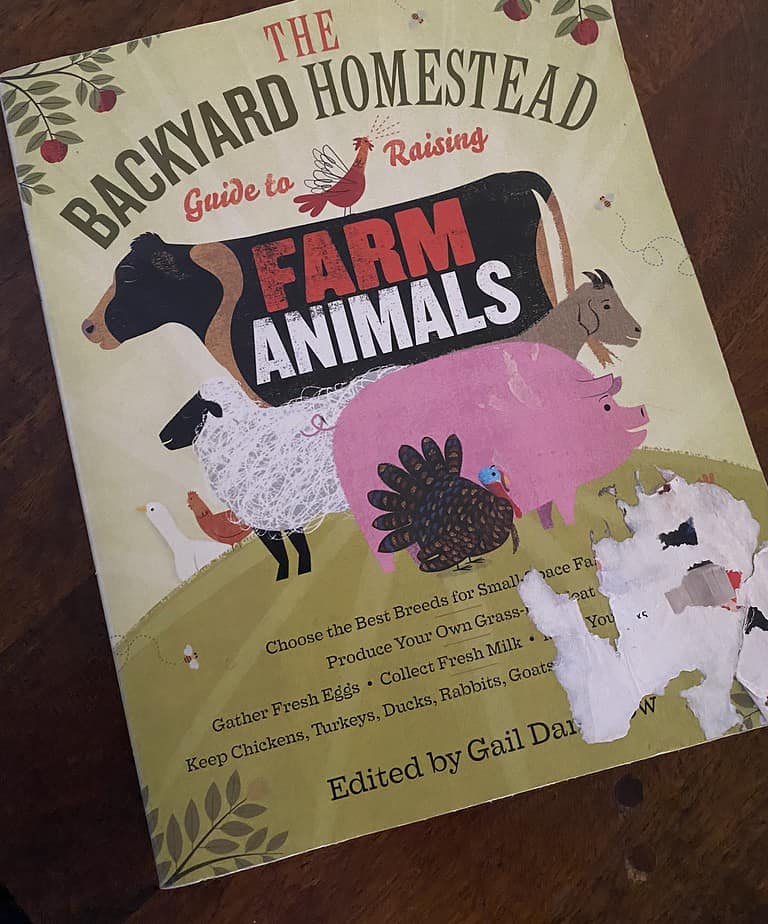
Leave a Reply